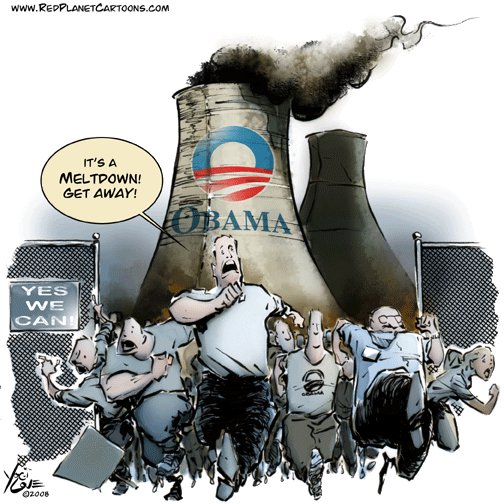
You think ’10 was tough? Check out ’12
The Hill
For the first time in two cycles, Democrats will have more seats up for grabs than the Republicans, and the party could see its shrunken majority erased altogether.
Several of the senators up for reelection came in on the 2006 Democratic wave, when the party picked up six GOP seats and won control of the chamber.
Sens. Bob Casey Jr. (D-Pa.), Claire McCaskill (D-Mo.), Sherrod Brown (D-Ohio), Sheldon Whitehouse (D-R.I.), Jon Tester (D-Mont.) and Jim Webb (D-Va.) defeated GOP incumbents that year but will have to win reelection in 2012.
And two senators who won special elections Tuesday, Joe Manchin (D-W.Va.) and Kirsten Gillibrand (N.Y.), will face voters again in two years.
Democrats lost at least six Senate seats Tuesday, with results in Washington and Alaska undetermined as of press time, but they retained control.
That could change in two years, when Democrats have 21 seats up for grabs, compared to only 10 for Republicans. Also up for reelection are Sens. Joe Lieberman (Conn.) and Bernie Sanders (Vt.), the two Independents who caucus with Democrats — meaning the party has a total of 23 seats to defend.
“The numbers are really working against them, no question about it,” said Jennifer Duffy, a senior Senate analyst at The Cook Political Report. “It will come down to what it always comes down to: retirements and recruiting.”
Many of those Democratic seats up next cycle are in purple or red states, including those of McCaskill, Manchin, Tester, Webb and Sens. Kent Conrad (N.D.), Ben Nelson (Neb.) and Bill Nelson (Fla.).
Webb saw several House Democrats in his state lose reelection Tuesday, and McCaskill saw her party lose a Senate pickup opportunity when Roy Blunt (R) won retiring Sen. Kit Bond’s (R-Mo.) seat.
Some senators could opt to retire in 2012. Among those observers will be watching are Ben Nelson and Sen. Herb Kohl (D-Wis.).Nelson is expected to face a difficult race, and Kohl saw his home-state colleague, Sen. Russ Feingold (D), lose on Tuesday.
Casey and Conrad also saw Democratic colleagues lose in their home states on Tuesday. And Sen. Dianne Feinstein (D-Calif.), who’s up in 2012, watched fellow California Democrat Barbara Boxer fend off a tough challenge from the GOP.
“It is certainly true that the landscape will be tilted in 2012 in terms of the seats at risk,” said Stuart Rothenberg, editor and publisher of The Rothenberg Political Report. “[Democrats] will be defending more seats, so they could have more losses. On the other hand, it depends on the mood of the public.”
The other Democratic incumbents up next cycle are Daniel Akaka (Hawaii), Tom Carper (Del.), Jeff Bingaman (N.M.), Maria Cantwell (Wash.), Ben Cardin (Md.), Amy Klobuchar (Minn.), Robert Menendez (N.J.) and Debbie Stabenow (Mich.).
The 10 GOP senators facing reelection are John Barrasso (Wyo.), Scott Brown (Mass.), Bob Corker (Tenn.), John Ensign (Nev.), Orrin Hatch (Utah), Kay Bailey Hutchison (Texas), Jon Kyl (Ariz.), Richard Lugar (Ind.), Olympia Snowe (Maine) and Roger Wicker (Miss.).
Of that list, the only senator who could be considered in a “dangerous” position is Brown, who represents Massachusetts, a blue state.
Hutchison could retire. She ran for Texas governor in 2010 but lost in the GOP primary. At the time, Hutchison hinted she could resign her seat; she never committed to running again in 2012.
Ensign could leave the Senate if he faces charges stemming from the fallout of an affair he had with a former staffer.
An unknown factor for the Republicans is the Tea Party. The grassroots movement took down several party favorites in GOP primaries this year and has threatened to do the same next cycle.
Already, Rep. Jason Chaffetz (R-Utah), a Tea Party favorite, has said he’d consider challenging Hatch in the 2012 GOP primary.
.

Wild Thing’s comment…….
The article does a good break down of what is coming up in the future.
The Democrats went into the 2010 elections with 40 seats in the U.S. Senate that weren’t even up for election, while the Republicans only had 23. This meant that the GOP had to defend a lot more seats, which made it that much more unlikely that they’d have the money and resources to win more than a few seats currently held by Democrats. The deck was very much stacked in the Democrats’ favor this year simply because of the way the rotating six-year terms came up in this cycle.
2012 will be a whole different story, as this article demonstrates. In that cycle, the number of seats up for election will be overwhelmingly held by sitting Democrats, which makes their job that much harder — especially if the economy is still in poor shape by then and Obama is a very unpopular figure.

In order to keep the momentum gained in this election we need to keep the ‘Newbies’ feet to the fire, so they don’t back away from the promises made during the campaign.
Even if this election’s wave is weaker in 2012, the Repubs should pick up a few more Dem seats in the senate. obama himself will be fighting for his political life and right now the majority deck is stacked against him. If he continues on his obnoxious and arrogant socialistic path I doubt he can win reelection.
Thank you so much Mark and Tom.